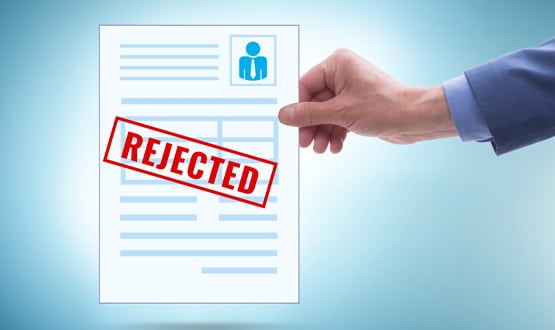Joe’s view of computer assisted self care
- 15 January 2013

We take the 10.20 easyJet Newcastle to Geneva flight on the way to comparethesoftware’s secret Alpine headquarters somewhere near Nendaz, Switzerland, for a strategic planning meeting for the coming 12 months.
Geneva always reminds me of two things: the classic John Otway and Wild Willy Barrett melodramatic ballad of the same name and the gorgeous Sharon McCready, female superhuman star of 60s TV series, The Champions.
Sharon, played by Alexandra Bastedo, first appeared on the telly when I was eight and I didn’t understand until a few years later why she made me feel all funny inside as she stood in front of Geneva’s trademark massive fountain.
The Freudian nature of the image was lost on me at the time. I believe all female children born in 1969 were named Sharon.
EasyChanges
Interestingly, easyJet has changed its boarding procedures in two ways since my last flight with the company.
We have allocated seats – replacing the traditional boarding scrummage or extra fee for "speedy boarding" – and the boarding pass is no longer checked at the departure gate, only at the top of the stairs to the plane.
Obviously, easyJet has analysed its business process for moving me from the taxi rank outside the airtport to my seat on the plane, in order to speed up the process and reduce its cost.
Earlier, I had checked in online from my own home and printed off my own boarding pass. Effectively, I was doing the work that was traditionally done by ground staff or cabin crew, allowing them to spend more time with the aircraft in the air (making money).
Key to the process was the use of my national identity card, or passport as it is more commonly known. It has two functions; it allows the airline to identify me as a legitimate ticket holder, and – I assume – to notify big brother that I have left the country.
During the process, none of the passengers complains about their personal data being held by easyJet or the government.
Either they don’t care or they are confident that the Data Protection Act will look after them. People don’t care that easyJet knows where they are.
We arrive at Geneva airport, where I have ordered a hire car. I hand my European ID card, also known as my driving licence, and my credit card to the car hire company.
Many others, I notice, are doing the same. People don’t care that Europcar know where they are and have their banking details.
The following morning, I leave the chalet and again hand over my ID and credit card at the office where ski lift passes are purchased.
The girl behind the counter asks me if I want to set up an account so I don’t have to fill out my details every time I buy a lift pass.
If I do this, the card she gives me can be recharged online, so I don’t have to waste the first day of my next skiing holiday in a queue. I even get a five Euro discount for doing the work myself! Why wouldn’t I want an account?
EasyThinking for an easierNHS
Can we apply some of this “easyThink” to the NHS? The ‘Nicholson challenge’ (shave £20billion off the NHS budget so that standards can be maintained in the face of increased demand from an ageing population) means we will have to radically rethink our business processes.
We will need to free up clinical staff to spend more time "in the air" and less on the ground. The problem is that we have taken paper away from clinicians and replaced it with electronic systems that take longer to do the same job.
Sure, you get some time back later when you – hopefully – don’t have to repeat the collection of the same basic history at every encounter; although this assumes systems are all joined up, and they’re not.
My NHS Number is – theoretically – able to link me to my medical record in the same way that my passport links me to my boarding pass.
But given the failure to deliver secondary care electronic patient records, with the exception of mental health, my NHS Number is currently underutilised.
We need to be using systems in the way easyJet uses systems; with the customer taking responsibility for doing as much of the work as possible; an not just checking in, if we are to save £20 billion.
How about easyMood?
So. Depression kills more than 5,000 people a year in the UK, with the cost to the nation estimated at up to £10 billion.
Imagine you decide you are depressed. You Google depression. You click on the first unsponsored link (you are an eHealth Insider reader, and understand a little about the Google algorithm) because that will take you to the most popular site about depression (and not the one with the deepest pockets and most expensive Google adwords campaign).
You are taken to the easyMood website, where you are interviewed using a computerised version of the Present State Examination (a standardised mental health interview) and your symptoms are rated as mildly depressed. Then you are offered three choices:
- An online video consultation with a mental health practitioner, who has had access to your online assessment so he or she doesn’t have to go through the whole thing again, and is online now
- A package of online computer based cognitive behaviour therapy
- A trial of an antidepressant medication.
You decide you don’t want to see anyone because you have a high profile job in health IT. You don’t like taking tablets. So you opt for online CBT.
Unfortunately, It doesn’t work (for you, on this occasion – it demonstrably does work but is rarely funded even though it is cheaper than other options).
After the last session, you rate your mood as “no better”. You are offered further options. You opt for a trial of antidepressants after watching an explanatory video on YouTube for which easyMood brought up a link.
You are also asked to rate the service. If you fill in the feedback your prescription charges are waived for six months. This is recorded on your NHS card.
You collect the prescription from the easyMood service, which has been sent electronically to the pharmacy of your choice. It confirms who you are by scanning your NHS card.
You get better. EasyMood sends you regular emails and asks you to send it mood rating scales. When they have been stable for six months you are prescribed a reducing regime of antidepressants and stop taking them. You remain well.
In all of this, you avoided going to a psychiatric facility. You saved time, you saved money, and you freed up time for other patients unable to manage themselves.
You receive email from easyMood asking if I would like to open an account and avoid having to repeat everything should you need to come back. You agree. Why wouldn’t you?
Fanciful? I’ve oversimplified this example for the sake of argument, but we did something very similar to the above for flu – and flu killed 5,000 people fewer than depression killed last year alone.
Time to start thinking
Anyone up for some real change, or is “computer-can-do-what-doctors-do-now” too scary? Primary care is probably the place where most impact could be made in terms automated self-care.
But in an NHS handed over to GP control it seems unlikely that GPs will embrace replacing themselves with computers in great numbers any time soon.
Maybe it’s time for the establishment of Saint Skype’s online NHS Trust for consenting adults. Just to show what might be achieved.
About the author: Joe McDonald is a practising NHS consultant psychiatrist. Over the past five years he has been an NHS trust medical director and national clinical lead for IT at NHS Connecting for Health – a stint that included 18 months as medical director of the Lorenzo delivery team!
His experiences in the National Programme for IT in the NHS have left him with a passion for usability and "end user knowledge networks.” He is the founding chairman of the National Mental Health Informatics Network. Motto: we don’t get fooled again. Follow him on twitter @CompareSoftware




